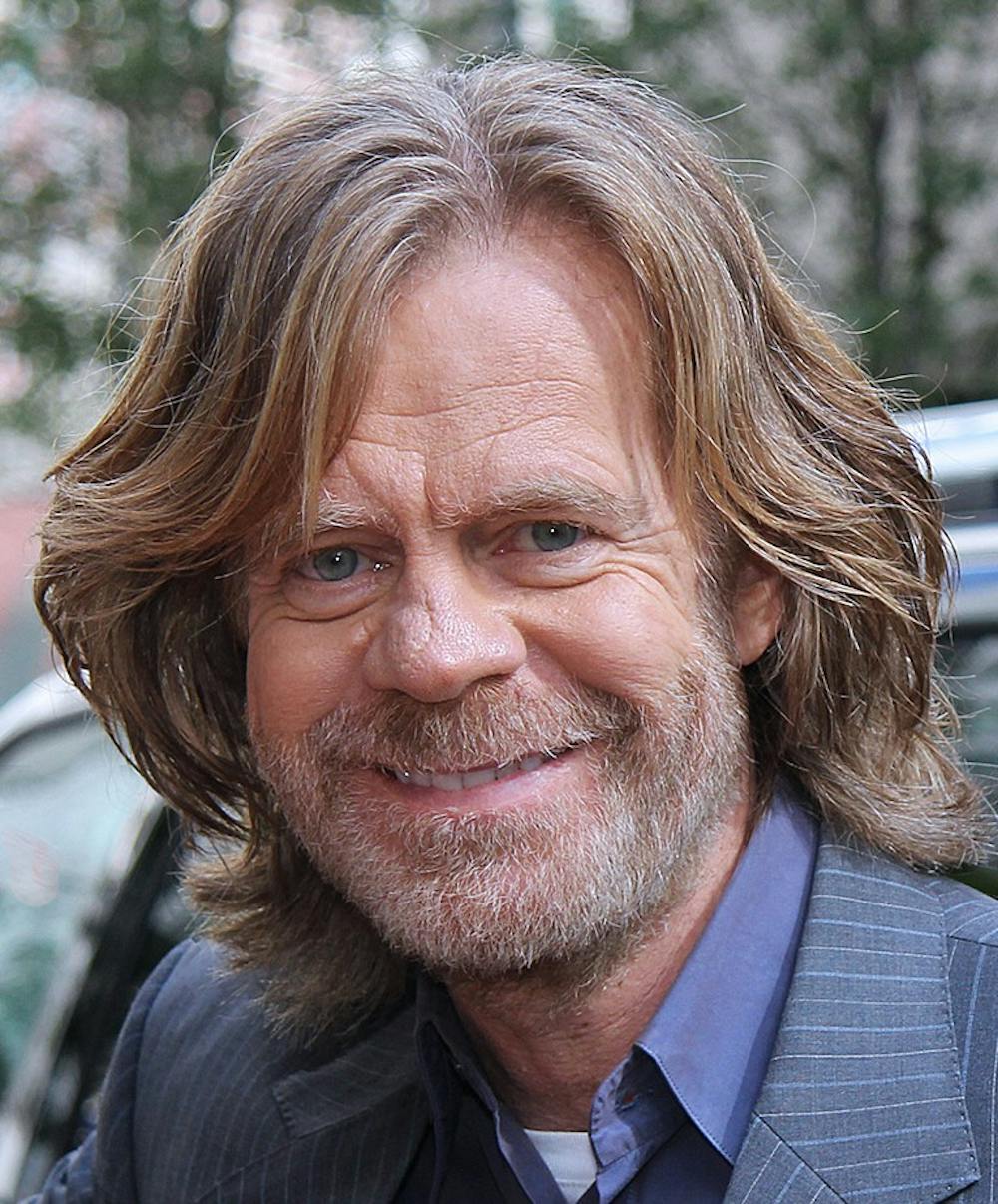The Virginia Film Festival is a prestigious event, a claim made especially true by this year’s impressive line-up. With over 150 films, special guests like Spike Lee and timely film categories such as Race in America, any given movie on the schedule had better be spectacular, or else it will fall into obscurity.
Friday night’s “Krystal” had all the makings of a spectacular movie. With special guest William H. Macy of “Fargo” and “Shameless” fame — not quite on the level of Spike Lee, but an enormously talented actor nonetheless — and a story about battling addictions, questioning the existence of God and finding unlikely romance through it all, it seems like such a film could do no wrong.
And yet it did.
“Krystal” serves as the perfect example of an unfortunate truth in movie-making. Even a talented cast and crew — and the cast and crew of “Krystal” are certainly talented — cannot overcome the problem of a bad story.
To be fair, the movie starts off somewhat promisingly. Protagonist Taylor Ogburn (a capable if underwhelming Nick Robinson) sits on a beach and narrates his early life story to the audience in a mostly convincing Southern drawl — the movie takes place in Savannah, Ga.
Ogburn explains that his heart condition, paroxysmal atrial tachycardia — thankfully abbreviated to PAT throughout the movie — has prevented him from leading a normal life, as the condition causes episodes with similar symptoms to heart attacks whenever he is stressed or overcome by some emotion. This is immediately proven to be true when Krystal Bryant herself (Rosario Dawson, easily the standout of the film) shows up in wet, skimpy clothing, asking for a ride, and Ogburn falls into a lust-induced episode.
Though the narrative up until this point has followed an emotional, even subdued track, the introduction of Krystal — and especially, the introduction of lust — sets the standard for the farcical, needlessly cartoonish events to follow. Krystal rushes Ogburn to the hospital and then disappears from his life, leading Ogburn to creepily — not romantically, as the movie would have viewers believe — pursue her, even masquerading as an alcoholic to join her Alcoholics Anonymous meeting.
Through the course of this borderline stalking, Ogburn learns that Krystal is a former stripper and recovering heroin addict. He also learns that she is old enough to be his mother — in fact, her son Bobby (Jacob Latimore) is only two years younger than Ogburn himself. Rather than let this dissuade him, he continues to pursue Krystal, even attempting to radically change his identity so that she will be more attracted to him. Though this is all portrayed as romantic, emotional stuff, Ogburn’s actions are more sociopathic than sweet.
Thrown into the mix is Ogburn’s wise, dying mentor Vera Greenwood (Kathy Bates), a frustrating waste of an iconic actress. Additionally, there is Ogburn’s father Wyatt and brother Campbell, the former played by Macy himself and the latter played by Grant Gustin. Ogburn’s family is a group of morally corrupt, alcohol- and drug-dependent losers, supposedly as a foil to Ogburn’s own noble actions — namely, pursuing a woman nearly twice his age, despite the objections of Krystal, her son Bobby and, more likely than not, the audience.
Midway through the plot, Krystal’s ex-lover Willie (inexplicably, T.I.) shows up to reclaim Krystal as his own and presumably kill Ogburn in the process. This is where the movie reaches the peak of its cartoonish, over-the-top nature, at a point where it should arguably be reaching the height of drama. If the plot points of this film were recounted without mentioning the genre, it would almost certainly sound like a drama. As a comedy, it is almost offensive.
Picture this scene — when Willie arrives in the film, he chases down Ogburn and Bobby. Bobby, who is wheelchair-bound thanks to a father mentioned only once, ends up toting Ogburn in his lap as they flee Willie. By the end of the scene, Willie has been run over not only by Bobby’s wheelchair, but also by an actual car. And the audience is expected to laugh.
Don’t worry — Willie survives. At the emergency room, he steals some pills that enable him a direct connection with — in one of the most bizarre and unnecessary twists of the film — the Devil himself, played by Peter Gallagher.
The Devil goads Willie into attempting to commit violence against Krystal, leading to a climax that still, for some reason, resorts to cartoonish comedy and pratfalls. Even though Ogburn seems to come out of it all with a deeper understanding of life, the audience is left baffled as to why such a movie exists.
The panel of actors and creators that spoke after the screening of “Krystal” could provide little insight into this question. Featuring Macy, Robinson and producer Rachel Winter, the discussion with moderator Mitch Levine largely revolved around the production of the movie.
Winter spent some time discussing the film’s lengthy production problems, saying that she had discovered the script over 10 years ago but hadn’t been able to put together a cast and crew for a while.
Macy went on to say that, once all the roles were finally filled, the movie itself didn’t take much time to make.
“There was very little rehearsal,” Macy said. “It was fast.”
Robinson chimed in with a truly misguided description of the movie’s writing.
“It’s like reading a Faulkner novel, but a script,” Robinson said.
Macy seemed to express mild regret about Gallagher’s unusual role as the Devil.
“It turned out … pretty well,” Macy said. “Our ambitions exceeded our budget with that.”
The group soon left the stage, failing to shed much light on the thought process behind “Krystal.”
This is only Macy’s third time directing a movie and his track record has been uneven — “The Layover” ranks as one of the worst movies made in recent memory, while “Rudderless” is much more admirable. “Krystal” falls somewhere in between — while not terrible, it is far from excellent, and is certainly not film festival-caliber.





